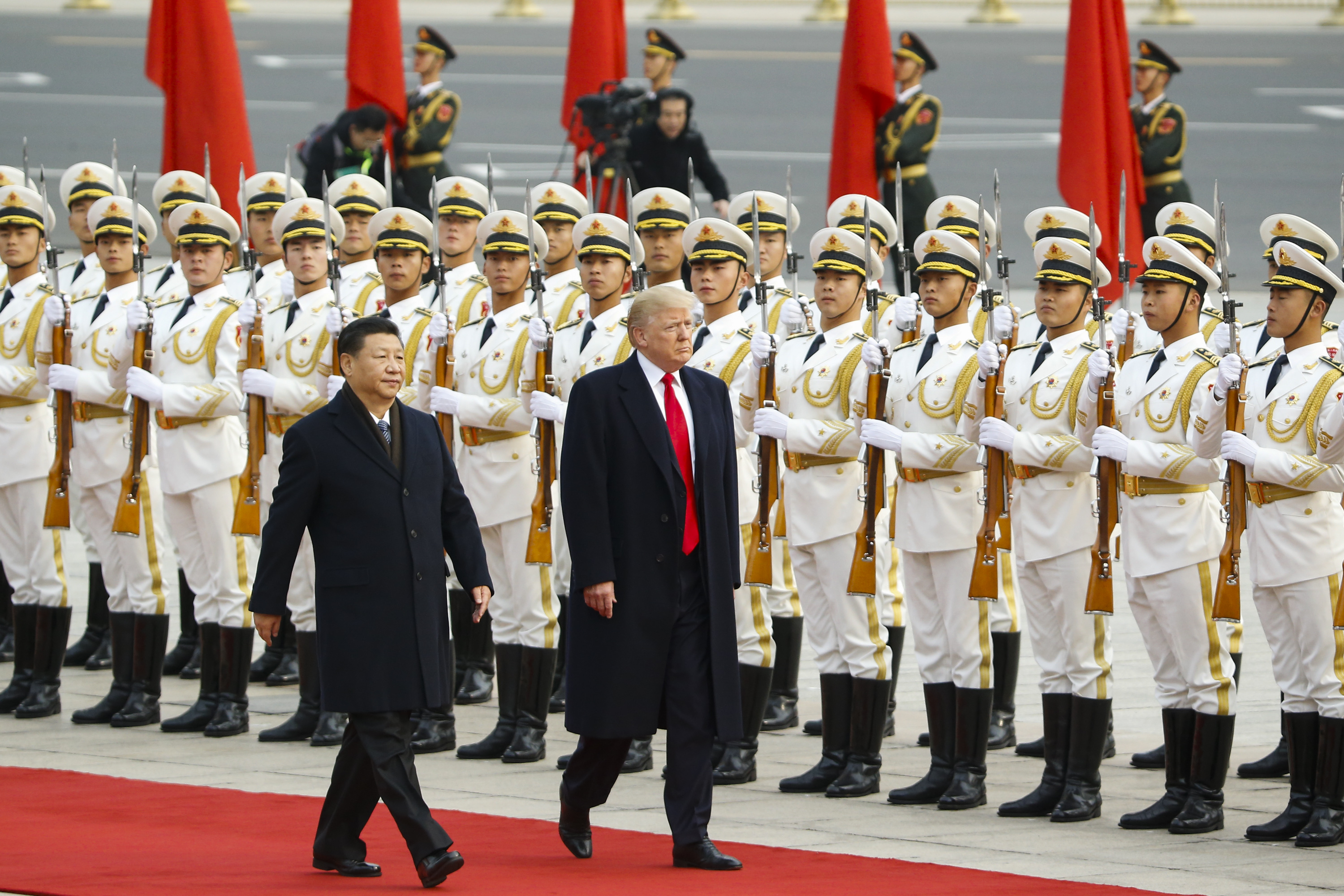The authoritarian moment
All over the world, liberal democracy is in retreat


A free daily email with the biggest news stories of the day – and the best features from TheWeek.com
You are now subscribed
Your newsletter sign-up was successful
This is the editor's letter in the current issue of The Week magazine.
History, it turns out, is not over. Liberal democracies have not won the war of ideas. In his influential 1992 book, The End of History, political philosopher Francis Fukuyama surveyed a world in which the Soviet Union had collapsed, the Cold War was over, and the West had won — seemingly for good. Free-market democracies, Fukuyama said, had proven they were the "final form of human government." But that victory's permanence was an illusion. In the 21st century, liberal democracy is in retreat all over the world, as autocrats and populist extremists seize the levers of power. In China, President Xi Jinping has made himself an emperor. In Russia, the modern czar Vladimir Putin leverages the West's social media and free speech to deepen our divisions and interfere in our elections. Poland, Hungary, and Turkey are all devolving into autocracies; far-right populist parties are on the rise throughout Europe. "Twenty-five years ago, I didn't have a sense or a theory about how democracies can go backward," Fukuyama recently told The Washington Post. "And I think they clearly can."
In a new book, The People vs. Democracy, political scientist Yascha Mounk explains what Fukuyama failed to foresee. Center-left and center-right mainstream parties, Mounk says, have failed to address the powerful economic and cultural anxieties created by globalization, immigration, and multiethnic societies. Faith in democracy is waning; the belief that the system is "rigged" is growing. That's opened the door to nationalist strongmen who claim to speak for "the people," with simplistic solutions to their complaints. If democracies and mainstream parties do not adapt, Mounk warns, the center will not hold; authoritarians on both the left and right may carve up the world. Here and abroad, the threat to free speech, individual rights, and the rule of law is very real. History is still being written, and it's a real page-turner.
The Week
Escape your echo chamber. Get the facts behind the news, plus analysis from multiple perspectives.

Sign up for The Week's Free Newsletters
From our morning news briefing to a weekly Good News Newsletter, get the best of The Week delivered directly to your inbox.
From our morning news briefing to a weekly Good News Newsletter, get the best of The Week delivered directly to your inbox.
A free daily email with the biggest news stories of the day – and the best features from TheWeek.com
William Falk is editor-in-chief of The Week, and has held that role since the magazine's first issue in 2001. He has previously been a reporter, columnist, and editor at the Gannett Westchester Newspapers and at Newsday, where he was part of two reporting teams that won Pulitzer Prizes.
-
 The world’s most romantic hotels
The world’s most romantic hotelsThe Week Recommends Treetop hideaways, secluded villas and a woodland cabin – perfect settings for Valentine’s Day
-
 Democrats push for ICE accountability
Democrats push for ICE accountabilityFeature U.S. citizens shot and violently detained by immigration agents testify at Capitol Hill hearing
-
 The price of sporting glory
The price of sporting gloryFeature The Milan-Cortina Winter Olympics kicked off this week. Will Italy regret playing host?
-
 Epstein files topple law CEO, roil UK government
Epstein files topple law CEO, roil UK governmentSpeed Read Peter Mandelson, Britain’s former ambassador to the US, is caught up in the scandal
-
 Iran and US prepare to meet after skirmishes
Iran and US prepare to meet after skirmishesSpeed Read The incident comes amid heightened tensions in the Middle East
-
 Israel retrieves final hostage’s body from Gaza
Israel retrieves final hostage’s body from GazaSpeed Read The 24-year-old police officer was killed during the initial Hamas attack
-
 China’s Xi targets top general in growing purge
China’s Xi targets top general in growing purgeSpeed Read Zhang Youxia is being investigated over ‘grave violations’ of the law
-
 Panama and Canada are negotiating over a crucial copper mine
Panama and Canada are negotiating over a crucial copper mineIn the Spotlight Panama is set to make a final decision on the mine this summer
-
 Why Greenland’s natural resources are nearly impossible to mine
Why Greenland’s natural resources are nearly impossible to mineThe Explainer The country’s natural landscape makes the task extremely difficult
-
 Iran cuts internet as protests escalate
Iran cuts internet as protests escalateSpeed Reada Government buildings across the country have been set on fire
-
 US nabs ‘shadow’ tanker claimed by Russia
US nabs ‘shadow’ tanker claimed by RussiaSpeed Read The ship was one of two vessels seized by the US military
